-
 Bitcoin
Bitcoin $108,703.4836
0.45% -
 Ethereum
Ethereum $2,576.6839
1.58% -
 Tether USDt
Tether USDt $1.0001
0.00% -
 XRP
XRP $2.2924
-0.87% -
 BNB
BNB $660.2136
0.01% -
 Solana
Solana $151.4729
-0.29% -
 USDC
USDC $1.0000
0.00% -
 TRON
TRON $0.2866
0.04% -
 Dogecoin
Dogecoin $0.1698
0.82% -
 Cardano
Cardano $0.5831
0.13% -
 Hyperliquid
Hyperliquid $37.9814
-3.97% -
 Bitcoin Cash
Bitcoin Cash $503.9489
1.93% -
 Sui
Sui $2.8994
0.74% -
 Chainlink
Chainlink $13.5429
0.38% -
 UNUS SED LEO
UNUS SED LEO $9.0693
-0.19% -
 Stellar
Stellar $0.2524
0.15% -
 Avalanche
Avalanche $18.1959
1.02% -
 Shiba Inu
Shiba Inu $0.0...01180
1.48% -
 Toncoin
Toncoin $2.7601
-0.76% -
 Hedera
Hedera $0.1606
0.96% -
 Litecoin
Litecoin $86.6105
0.26% -
 Monero
Monero $315.7691
-0.56% -
 Polkadot
Polkadot $3.3911
0.25% -
 Dai
Dai $1.0001
0.03% -
 Ethena USDe
Ethena USDe $1.0002
0.02% -
 Bitget Token
Bitget Token $4.3076
-0.05% -
 Uniswap
Uniswap $7.5901
3.66% -
 Aave
Aave $288.0954
0.35% -
 Pepe
Pepe $0.0...01002
1.64% -
 Pi
Pi $0.4578
0.09%
How to deal with smart contract interaction failure when transferring money through Ethereum wallet?
Ethereum smart contract failures during money transfers often stem from insufficient gas, incorrect contract addresses, or coding errors; thorough checks and understanding of gas fees are crucial for successful transactions.
Mar 24, 2025 at 11:21 pm
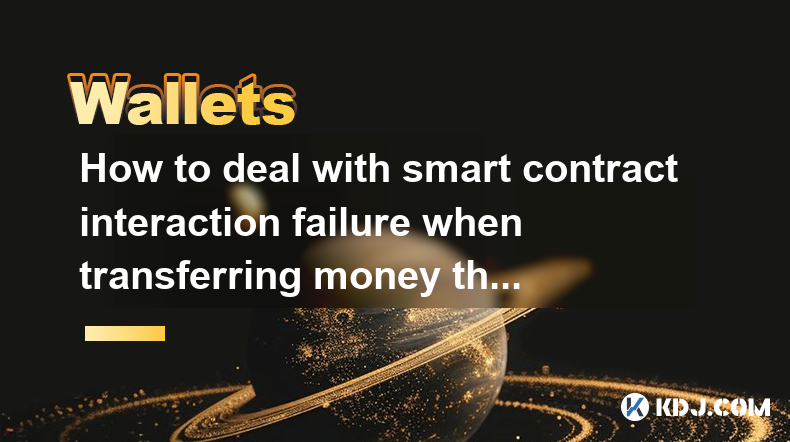
How to Deal with Smart Contract Interaction Failure When Transferring Money Through Ethereum Wallet?
Transferring funds via Ethereum smart contracts offers efficiency and automation, but it also introduces potential failure points. Understanding these points and how to troubleshoot them is crucial for successful transactions. Failures can stem from various sources, ranging from insufficient gas fees to incorrect contract addresses or coding errors within the smart contract itself. This article explores common causes and solutions for smart contract interaction failures during Ethereum transactions.
One common reason for failure is insufficient gas. Gas represents the computational effort required to execute a smart contract. If you don't provide enough gas, the transaction will fail before completion. Always ensure you've set a sufficient gas limit, potentially exceeding the estimated amount to account for unexpected complexity. Many wallets provide gas estimation tools, but it's wise to add a buffer.
Another frequent issue is an incorrect smart contract address. A single typo in the address will render the transaction invalid. Double, and triple, check the address before confirming the transaction. Use a reputable source for the contract address to minimize the risk of errors. Copy and paste directly from the verified source to avoid manual input errors.
Problems can also originate from the smart contract's code itself. Bugs, vulnerabilities, or poorly written code can cause unexpected failures. Before interacting with an unknown contract, carefully review its code (if available) or seek community feedback on its reliability. Avoid interacting with contracts lacking transparency or a verifiable audit.
Network congestion can also hinder transactions. During periods of high network activity, transactions might take longer to process or even fail. Consider increasing the gas price to incentivize miners to prioritize your transaction. However, be mindful of excessively high gas prices, as this could lead to unnecessarily high fees.
Sometimes, the failure is due to a problem with your Ethereum wallet. Ensure your wallet is properly connected to the network and has sufficient funds. Also, check your wallet's software version; outdated software might have compatibility issues with certain smart contracts.
Here's a step-by-step guide on how to troubleshoot smart contract interaction failures:
- Verify the Smart Contract Address: Double-check the address for typos and ensure it's sourced from a trusted location.
- Check Gas Limits and Prices: Adjust gas limits and prices based on network conditions. Use the wallet's estimation tool, but add a buffer for safety.
- Review the Smart Contract Code (if possible): Inspect the code for potential vulnerabilities or errors if you have access.
- Check Your Wallet's Connection and Balance: Ensure your wallet is connected to the correct network and holds enough ETH to cover the transaction fees and the intended transfer amount.
- Examine the Transaction Details: Your wallet should provide transaction details; review error messages for clues.
- Consult Community Forums or Support: If you're still facing issues, seek assistance from the relevant community forums or support channels for the smart contract or wallet.
- Wait for Network Congestion to Subside: If network congestion is the issue, wait for a period of lower network activity before retrying the transaction.
- Consider Using a Different Wallet: In rare cases, incompatibility between your wallet and the smart contract might cause failures. Try a different wallet.
Common Questions and Answers:
Q: What does "out of gas" mean in an Ethereum transaction?
A: "Out of gas" means you did not provide enough gas to complete the smart contract execution. The transaction was aborted before it could finish. Increase the gas limit and retry.
Q: How do I find the correct gas price?
A: Your wallet typically provides gas price estimations. You can also use online tools that display current gas prices. Remember that higher gas prices increase transaction speed but also increase fees.
Q: Why might a smart contract revert a transaction?
A: A smart contract might revert due to internal logic errors, insufficient funds in the contract, or failing a specific condition within the contract's code. Check the transaction details for error messages.
Q: What should I do if I see an error message I don't understand?
A: Search the error message online. Many common errors have explanations available in online forums and documentation. You can also seek help in relevant community forums or from developers familiar with the smart contract.
Q: Is it possible to recover funds lost due to a smart contract failure?
A: Recovering lost funds depends on the cause of the failure. If the failure was due to a bug in the contract, recovery might be impossible. If the issue was due to user error (like an incorrect address), recovery might be more feasible, but it depends on the specific circumstances and whether the funds are still accessible.
Q: How can I prevent smart contract interaction failures in the future?
A: Always double-check the smart contract address, carefully estimate gas, review the contract's code if possible, and use a reputable wallet. Stay informed about network congestion and adjust your transactions accordingly. Consider using test networks to test transactions before committing real funds.
Q: What are the best practices for interacting with smart contracts?
A: Thoroughly research any smart contract before interacting with it. Check for audits, community reviews, and the code itself (if available). Start with small test transactions on a testnet before committing significant funds on the mainnet. Always double-check all inputs before confirming a transaction. Understand the implications of the smart contract’s functionality before engaging with it.
Disclaimer:info@kdj.com
The information provided is not trading advice. kdj.com does not assume any responsibility for any investments made based on the information provided in this article. Cryptocurrencies are highly volatile and it is highly recommended that you invest with caution after thorough research!
If you believe that the content used on this website infringes your copyright, please contact us immediately (info@kdj.com) and we will delete it promptly.
- Kraken, Rear Wing, and Memecoins: A Wild Ride to the Singapore Grand Prix!
- 2025-07-09 00:50:12
- Cronos Skyrockets: Decoding the Reasons Behind CRO's Crypto Surge
- 2025-07-09 01:30:12
- Ethereum's Wall Street Love & Ruvi AI's Audit Rally: A Crypto Cocktail
- 2025-07-09 00:55:12
- Crypto Coins with Growth Potential: Top Picks for Savvy Investors
- 2025-07-09 01:35:13
- Onyxcoin (XCN) vs. Solana (SOL): A Promising Bet in the Crypto Game?
- 2025-07-09 00:30:12
- Pi Network's Supply Surge: A Recipe for Price Problems?
- 2025-07-09 02:10:13
Related knowledge
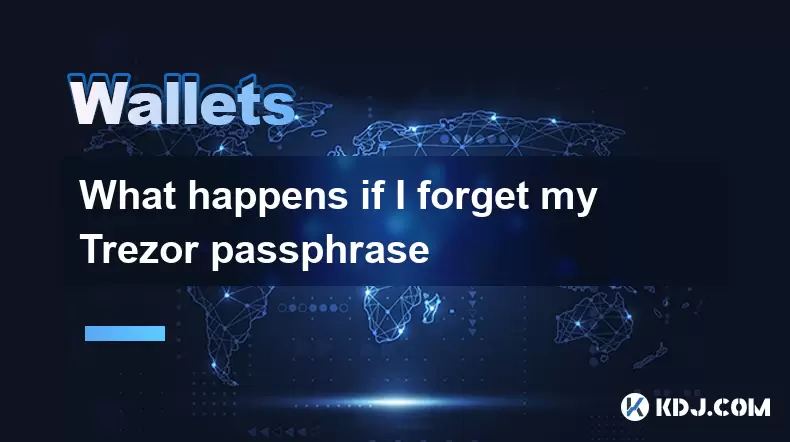
What happens if I forget my Trezor passphrase
Jul 09,2025 at 03:15am
Understanding the Role of a Trezor PassphraseIf you use a Trezor hardware wallet, you may have set up a passphrase as an extra layer of security beyon...
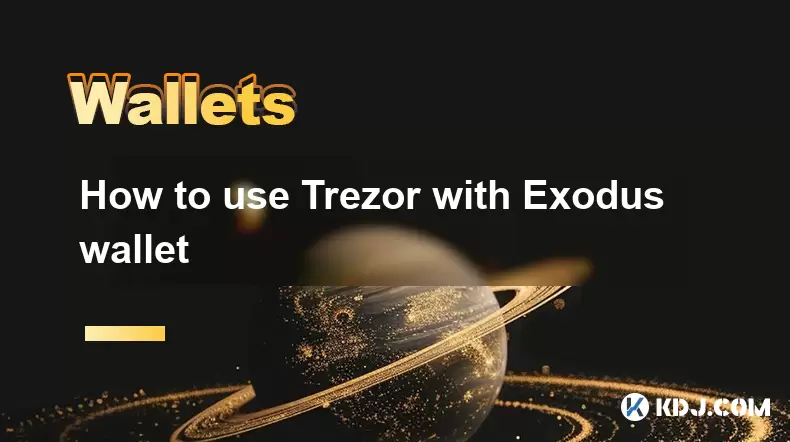
How to use Trezor with Exodus wallet
Jul 09,2025 at 12:49am
Connecting Trezor Hardware Wallet to Exodus Software WalletTo use Trezor with Exodus wallet, users need to connect the hardware wallet to the software...
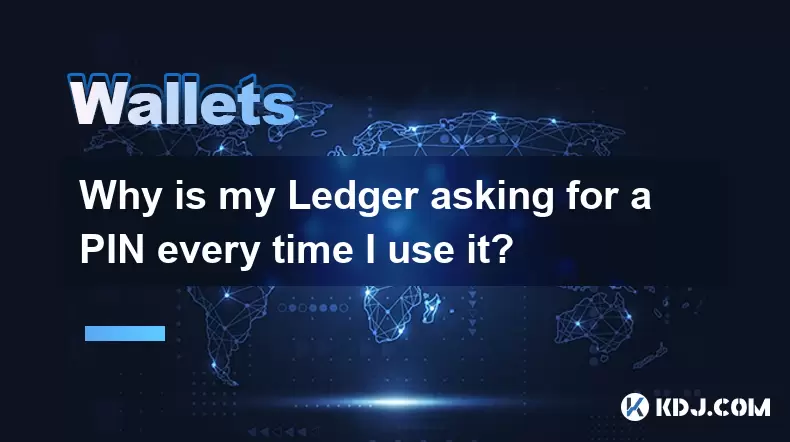
Why is my Ledger asking for a PIN every time I use it?
Jul 08,2025 at 11:21pm
Understanding the Purpose of the PIN on Your Ledger DeviceThe PIN (Personal Identification Number) is a crucial security feature built into every Ledg...
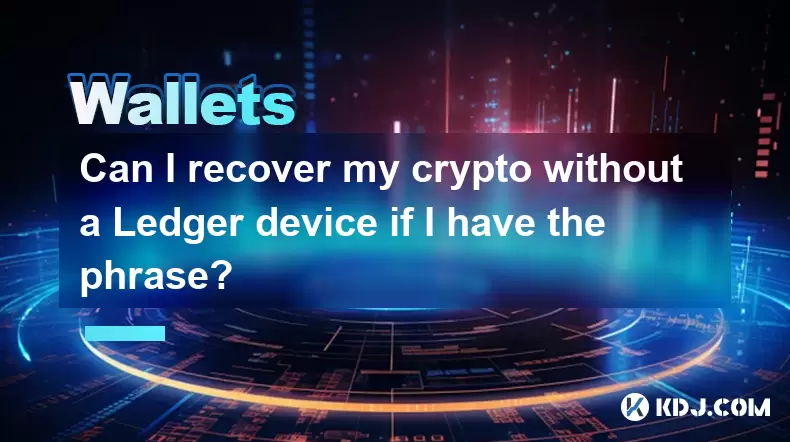
Can I recover my crypto without a Ledger device if I have the phrase?
Jul 09,2025 at 01:36am
Understanding the Role of a Recovery Phrase in Crypto SecurityIf you have your recovery phrase but no Ledger device, you might wonder whether it's pos...
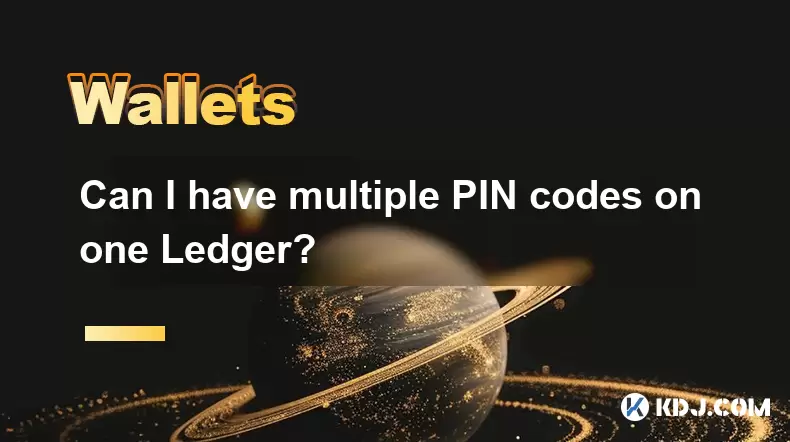
Can I have multiple PIN codes on one Ledger?
Jul 09,2025 at 12:35am
Understanding the Basics of Decentralized Exchanges (DEXs)A decentralized exchange, or DEX, is a type of cryptocurrency trading platform that operates...
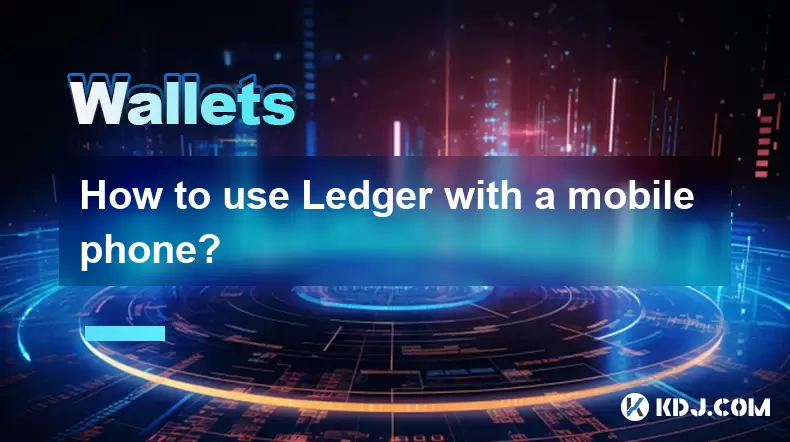
How to use Ledger with a mobile phone?
Jul 08,2025 at 10:49pm
Connecting Ledger Hardware Wallet to Mobile DevicesUsing a Ledger hardware wallet with a mobile phone provides a secure and convenient way to manage c...

What happens if I forget my Trezor passphrase
Jul 09,2025 at 03:15am
Understanding the Role of a Trezor PassphraseIf you use a Trezor hardware wallet, you may have set up a passphrase as an extra layer of security beyon...

How to use Trezor with Exodus wallet
Jul 09,2025 at 12:49am
Connecting Trezor Hardware Wallet to Exodus Software WalletTo use Trezor with Exodus wallet, users need to connect the hardware wallet to the software...

Why is my Ledger asking for a PIN every time I use it?
Jul 08,2025 at 11:21pm
Understanding the Purpose of the PIN on Your Ledger DeviceThe PIN (Personal Identification Number) is a crucial security feature built into every Ledg...

Can I recover my crypto without a Ledger device if I have the phrase?
Jul 09,2025 at 01:36am
Understanding the Role of a Recovery Phrase in Crypto SecurityIf you have your recovery phrase but no Ledger device, you might wonder whether it's pos...

Can I have multiple PIN codes on one Ledger?
Jul 09,2025 at 12:35am
Understanding the Basics of Decentralized Exchanges (DEXs)A decentralized exchange, or DEX, is a type of cryptocurrency trading platform that operates...

How to use Ledger with a mobile phone?
Jul 08,2025 at 10:49pm
Connecting Ledger Hardware Wallet to Mobile DevicesUsing a Ledger hardware wallet with a mobile phone provides a secure and convenient way to manage c...
See all articles

























































































